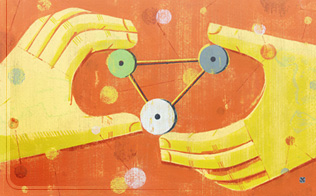Synbio news
Last week the Food and Drug Administration released for comment the draft environmental assessment submitted by Oxitec for its genetically engineered Aedes aegypti mosquitoes, while also finding the company's field test would have no significant impact on the environment.
The Synthetic Biology Center at the Massachusetts Institute of Technology is hosting its Third International Mammalian Synthetic Biology Workshop in May, which will feature keynote talks by Profs. Shelley Berger and Irving Weissman.
Startups, entrepreneurs, investors and others will convene Nov. 4-6 in San Francisco for the SynBioBeta 2015 conference to discuss the latest developments in synthetic biology. More information can be found here.
The Engineering Biology meeting, held in New York in April 2015, focused on the steps needed to ensure the full potential of synthetic biology. Videos presentations, articles and an executive summary can be found here.
Science magazine talks to Todd Kuiken of the Synthetic Biology Project about White House plans to update the framework surrounding biotechnology.
The Synthetic Biology Leadership Excellence Accelerator Program (SynBio LEAP) has awarded 23 fellowships to a wide variety of professionals to explore the future of synthetic biology. The fellows will convene their first meeting in early February, hosted by the Synthetic Biology Project at the Wilson Center.
The European Research Area Network for the development and coordination of synthetic biology in Europe has released a new report outlining the challenges and opportunities for the technology over the next decade. The document is expected to inform funding and policy decisions.
In a new paper published in Science, researchers at Johns Hopkins University announce their creation of the first-ever synthetic chromosome, which many see as a landmark step in the field of synthetic biology.
In a potentially far-reaching breakthrough, Yale and Harvard scientists have recoded a genome to improve its resistance to viruses, according to a new paper published in Science.
Following the success of the Glowing Plant Project, crowdfunding site Kickstarter has quietly changed its guidelines to block future projects from giving genetically modified premiums to backers.
The GenSpace Community Lab is crowdsourcing funding for a new "DNA Barcoding" project that would allow citizen scientists to identify species of Alaskan plants with only a small sample and at a low cost.
In a story showing how scientists can make important breakthroughs outside the tradition research avenues, Nature speaks with biotech entrepreneur Hugh Rienhoff about how he used genome sequencing on second-hand equipment to identify a mutation that could be causing his daughter's health issues.
Congress' Jan. 1 budget deal expands the definition of "cellulosic biofuel" to include for the first time microalgae- and cyanobacteria-based biofuels in the Cellulosic Biofuel Producers Tax Credit, which some analysts say could lead to "regulatory parity" for other tax credits.
